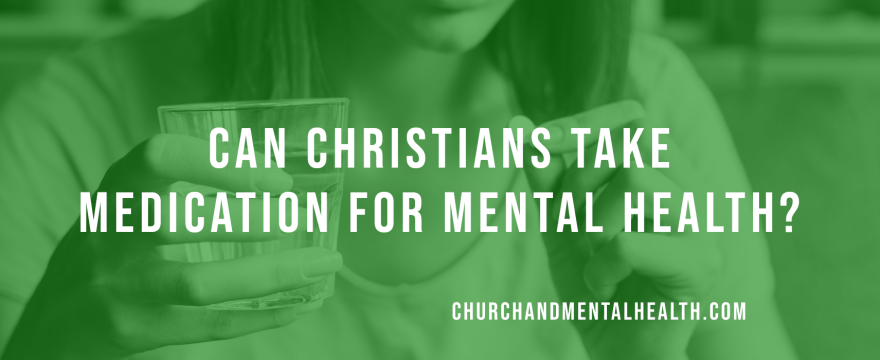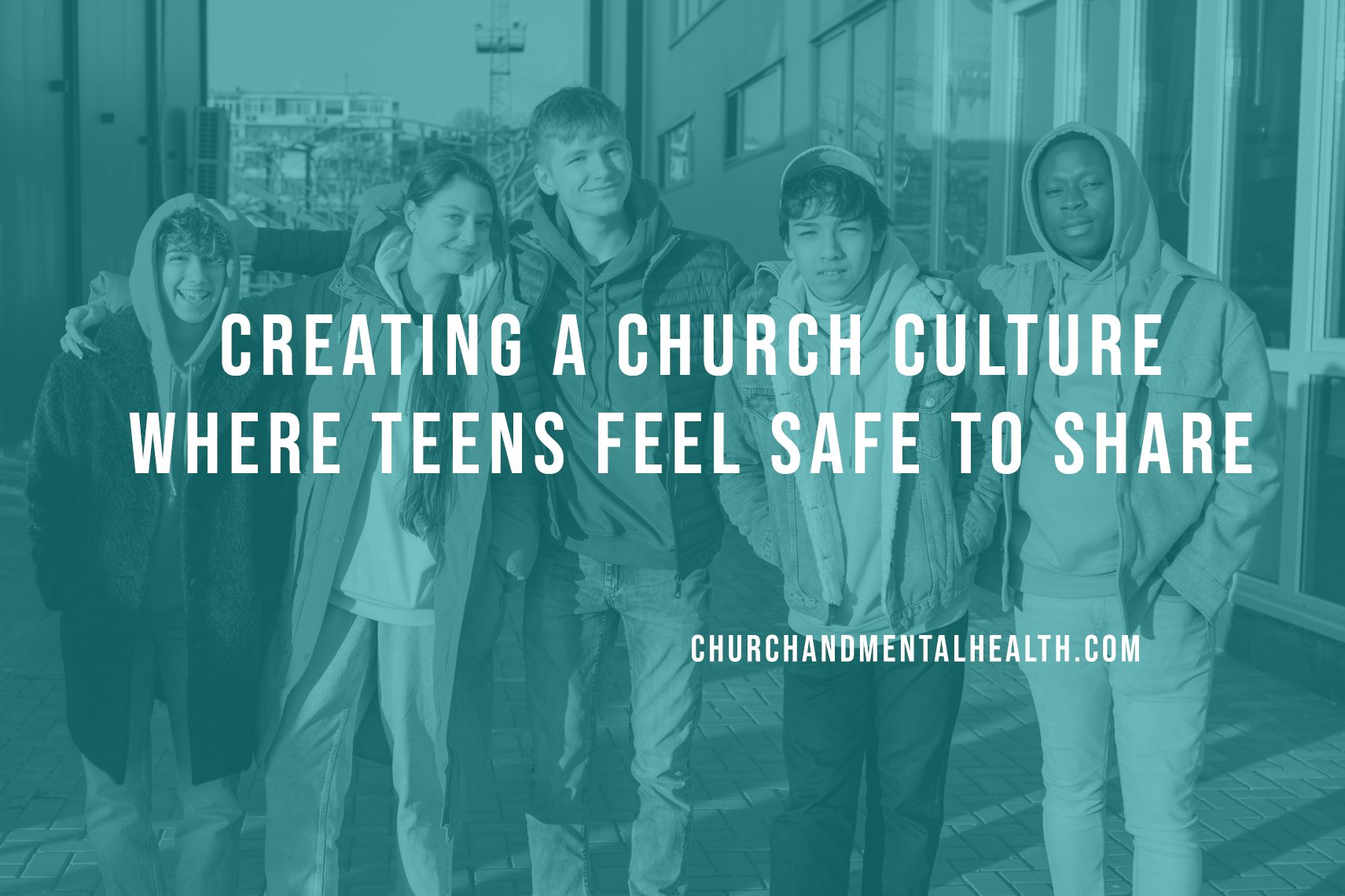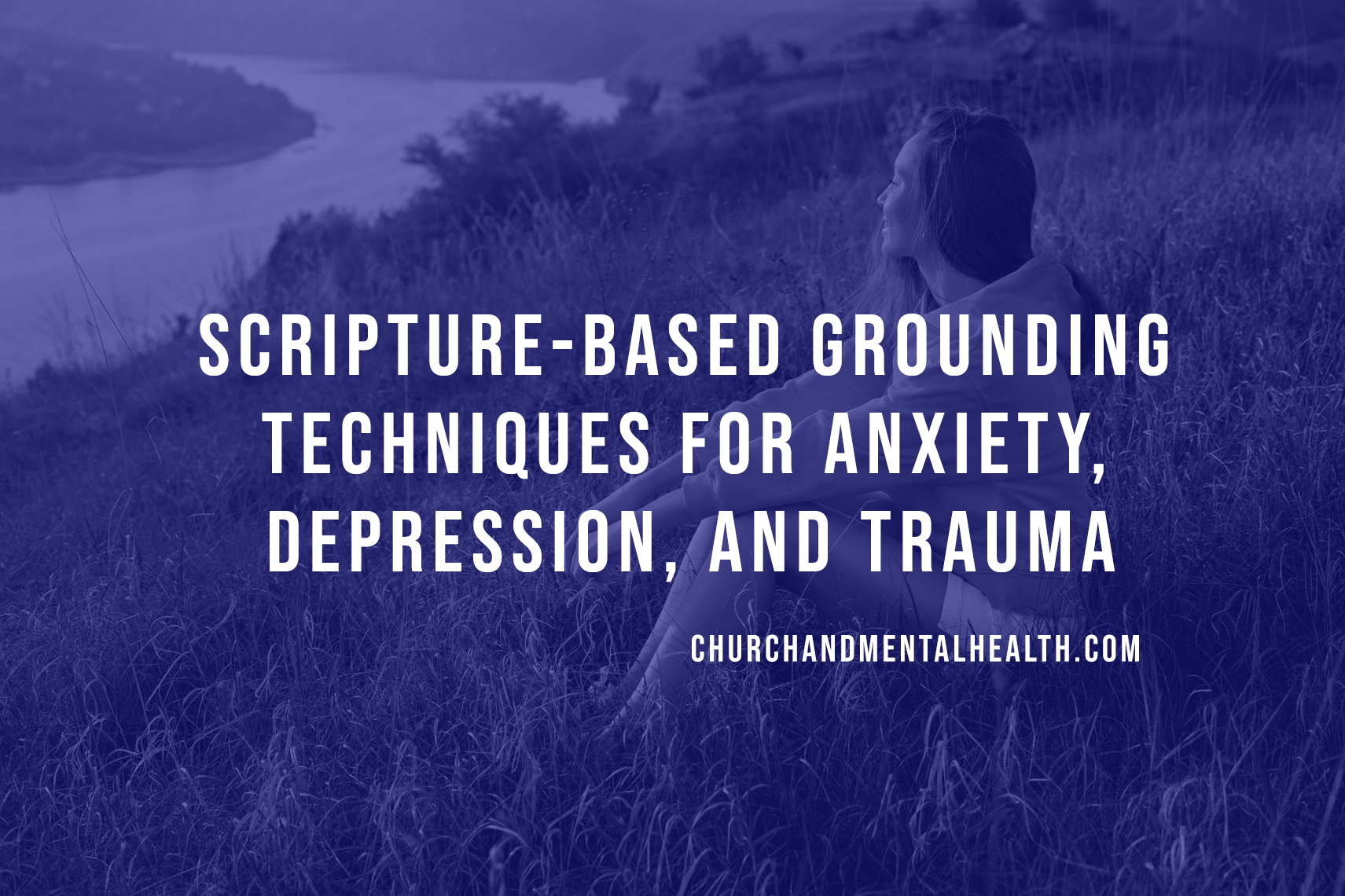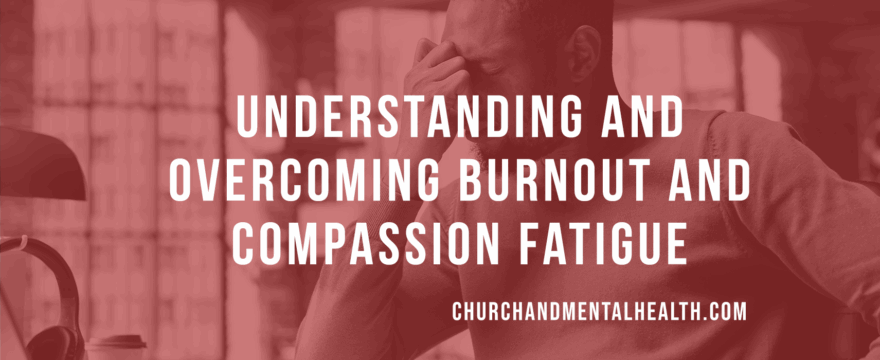In the video “Life Sustaining Joy”, (displayed below) Joni Eareckson Tada, of Joni and Friends, draws our attention to a profound truth: Christian joy is not merely a fleeting feeling of happiness or relief from pain, but a deep, life-sustaining reality anchored in the person of Christ and the gospel of his suffering, death, and resurrection.
[Read more…] about Finding Sustaining Joy in Christ [Video]Can Christians Take Medication for Mental Health?
One of the most pain-stricken questions in church conversations today is this: “Can a Christian in good faith take psychiatric medication or other mental-health drugs?” Many in our congregations, sometimes even pastors, feel tension or fear around this question. They worry that taking medication implies weak faith, sometimes explicitly communicated as trusting medicine more than God, or even that it is sinful.
In this article, I want to offer a pastoral, Biblical, and clinical perspective, aimed especially at pastors, elders, and Christians who counsel, on how to think about medication for mental health. My hope is that churches can become safer, wiser places for believers who struggle, not places of shame or silence.
[Read more…] about Can Christians Take Medication for Mental Health?Spiritual Warfare or Mental Health Issue? How to Discern the Difference
As a Christian counselor who has walked alongside pastors and ministry leaders within the Church as well as Christians in the counseling room, one of the more common and challenging questions I hear is: “Is this person struggling with spiritual warfare, or is this a mental health issue?”
For Christians who take seriously both the authority of Scripture and the reality of clinical mental health, this is not a question with quick or simplistic answers. The truth is, people live at the intersection of mind, body, community, and spirit. When distress shows up, we must discern carefully: Is this the enemy at work, a psychological struggle, or sometimes a mixture of both?
[Read more…] about Spiritual Warfare or Mental Health Issue? How to Discern the DifferenceJesus and Therapy [Book Review]
Tabitha Yates’ Jesus and Therapy is a thoughtful, heartfelt, and much-needed contribution to the conversation about mental health and faith within the Christian community. With compassion and clarity, Yates challenges the false narrative that trusting Jesus and seeking therapy are somehow incompatible. Instead, she presents a vision of wholeness that honors Christ while affirming the God-given wisdom and tools offered by mental health professionals.
[Read more…] about Jesus and Therapy [Book Review]Reframing for Pastors: Renewing Your Mind for Health and Ministry
Pastors are often the first to encourage others toward healthy living—but the last to apply that same wisdom to themselves. Sermons about rest, hope, and God’s faithfulness come easily when speaking to a congregation, yet many pastors live under relentless pressure, silently wrestling with exhaustion, anxiety, or discouragement.
[Read more…] about Reframing for Pastors: Renewing Your Mind for Health and MinistryCreating a Church Culture Where Teens Feel Safe to Share
[This article is part of a youth ministry series we have been writing about for years. Click the link to check out all of the other articles we have here.]
In today’s world, many teenagers carry silent struggles, whether with anxiety, depression, peer pressure, family conflict, or questions about faith. While teens often long for a place to be heard and understood, they may fear judgment, gossip, or being dismissed. The church should be one of the safest places for them to open up, but creating that kind of culture doesn’t happen by accident. It requires intentionality, humility, and Christ-centered love.
[Read more…] about Creating a Church Culture Where Teens Feel Safe to ShareCounseling for All
[The following article is a response post I posted on Remnant Counselor Collective in response to their article Should Therapists Take Insurance? Check them out and share your thoughts in the comments about your calling with serving in mental health services or the Church.]
As Christian counselors, we are called to be the hands and feet of Christ to a hurting world. Every day, we enter sacred spaces with our clients, whether they are struggling with anxiety, trauma, broken relationships, or systemic oppression. However, as our profession evolves, we must pause and ask: Who are we truly serving? And perhaps more importantly: Who is being left out?
[Read more…] about Counseling for AllScripture-Based Grounding Techniques for Anxiety, Depression, and Trauma
[This article is part of a mindfulness series we have been writing about for years. Click the link to check out all of the other articles we have here.]
In times of anxiety, depression, or trauma, many Christians find themselves struggling to connect what they know about God with what they feel in their bodies and minds. Scripture tells us that we are not alone, that God is with us, and that peace is possible, but those truths can feel distant when our nervous system is overwhelmed or our emotions are spiraling. This is where grounding techniques come in.
[Read more…] about Scripture-Based Grounding Techniques for Anxiety, Depression, and TraumaSpeaking the Truth in Love: Assertiveness and Active Listening for Christian Marriages
Marriage is one of God’s most sacred institutions, an earthly reflection of Christ’s love for the Church (Ephesians 5:25). And yet, even in Christian marriages, communication can break down. Many couples wrestle with misunderstanding, emotional distance, or unresolved conflict. The good news is that healthy communication is a skill that can be cultivated through biblical principles, therapeutic tools, and the power of the Holy Spirit. Two vital tools for growth in marriage are assertiveness and active listening, skills that promote both truth and grace.
[Read more…] about Speaking the Truth in Love: Assertiveness and Active Listening for Christian MarriagesUnderstanding and Overcoming Burnout and Compassion Fatigue
Ministry and counseling are sacred callings, but they can also become heavy burdens. As Christian counselors and pastors, we are often on the frontlines of human suffering—grieving families, broken marriages, mental illness, crises of faith, and the daily needs of our congregations or clients. While we pour ourselves out for others, we may find our own emotional and spiritual reserves running dry. Two common outcomes of this imbalance are burnout and compassion fatigue. Though often used interchangeably, they are not the same and require different strategies for healing.
(Note: this idea was recently discussed on our newsletter to include some brain science about the topic and inspired this article. Go check out that specific article with the brain science here and sign up here to get all future newsletters.)
[Read more…] about Understanding and Overcoming Burnout and Compassion Fatigue








